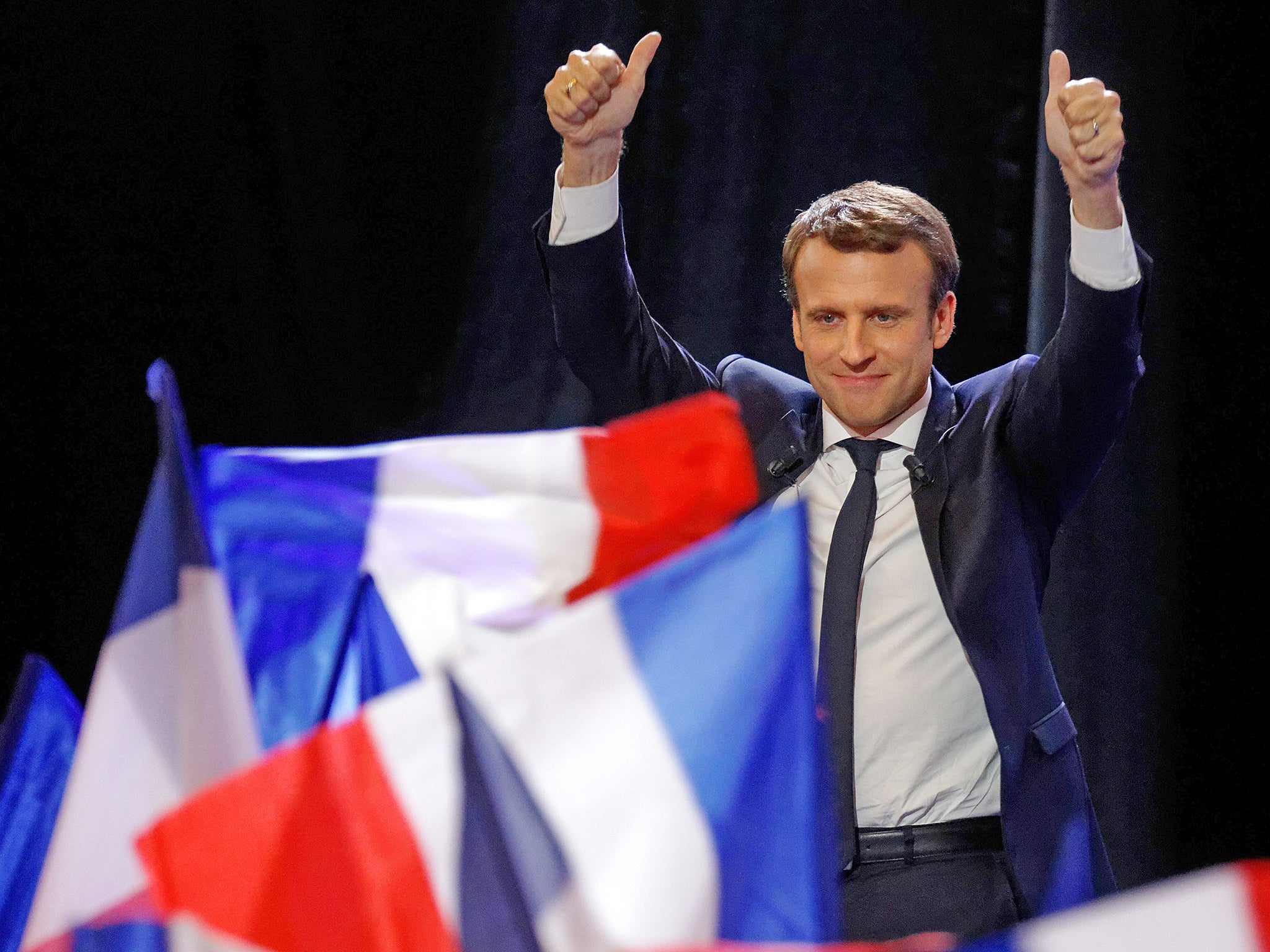Emmanuel Macron and Donald Trump are very different figures, but they may share the same political fate
A freshly elected president means nothing if that president can't actually get any of his legislation signed off


Your support helps us to tell the story
From reproductive rights to climate change to Big Tech, The Independent is on the ground when the story is developing. Whether it's investigating the financials of Elon Musk's pro-Trump PAC or producing our latest documentary, 'The A Word', which shines a light on the American women fighting for reproductive rights, we know how important it is to parse out the facts from the messaging.
At such a critical moment in US history, we need reporters on the ground. Your donation allows us to keep sending journalists to speak to both sides of the story.
The Independent is trusted by Americans across the entire political spectrum. And unlike many other quality news outlets, we choose not to lock Americans out of our reporting and analysis with paywalls. We believe quality journalism should be available to everyone, paid for by those who can afford it.
Your support makes all the difference.In the first round of the French presidential election, the forces of optimism overcame pessimism. You can say that Emmanuel Macron, with his new party, En Marche!, François Fillon, the candidate of the classic right and Benoît Hamon, the Socialist Party candidate, who was the only participant to discuss the effects of the digital revolution on work and who proposed a universal income, represented optimism. Their combined total of votes added up to 50.1 per cent of the electorate.
In contrast, Marine Le Pen, the National Front leader, who warned that French “civilisation” was under threat and Jean-Luc Mélenchon, the far left candidate, who called his movement La France insoumise, or rebellious France, and who wanted France to leave Nato and renegotiate its relationship with the European Union, garnered just 40.1 per cent of the first round votes.
This victory for optimism is the first surprise of the presidential election, for the French are widely thought to be the world champions of pessimism. Last year a poll by Ipsos in France found that a full 88 per cent of respondents indicated that they thought the country was going in the "wrong direction". By comparison, in Sweden and Germany some 73 and 71 per cent of people respectively believed their country was going the wrong way, while the figure was 64 per cent for the US, 58 per cent for Australia and 56 per cent for the UK.
In the days preceding the election, too, the pundits took a dim view of the engagement of voters in the process. Some 37 per cent of them had told pollsters that they would stay at home during the first round of the election. And as recently as the first week of April, a quarter of all voters indicated that they had yet to make up their minds. In the event, the actual turnout was superior to recent British averages at a very respectable 78 per cent.
That French voters should have been somewhat coy about their intentions is understandable. After all, they were about the break decisively with tradition. Only slightly more than a quarter of them voted for the mainstream parties with Fillon (Les Républicains) on 19.9 per cent of the vote and Hamon attracting only 6.3 per cent for the Socialist Party, which had governed France from 1981 to 1995 and again from 2012 to 2017. In 2012, these two parties together had gained the support of 56 per cent of the electorate in the first round of the presidential election, so they have lost half their voters in five years.
Nonetheless the successful outsiders, Le Pen and Macron, face major problems as they wait for the second round of the presidential election on 7 May. Le Pen, for instance has just passed the most favourable moment for success.
For three days before the first round of the presidential election took place, there was the frightful terrorist attack in very heart of Paris on the Avenue des Champs Elysées. Le Pen immediately declared: “Islamism is a monstrous totalitarian ideology that has declared war on our nation, on reason, on civilisation…the names of these new victims are added to the long list of martyrs of terrorism.” She called for France to reinstate border checks and to arrest all suspects on France’s terror watch list, while deporting foreign suspects and removing French citizenship from dual nationals.
Nonetheless, when Sunday’s election came, she ended up in second place behind Macron. If she couldn’t beat the field in such auspicious circumstances, she is never going to win.
On the other hand, Macron’s most acute problem will arise shortly after his expected victory – for French presidents have only limited powers of ruling by decree. For the most part they have to cast their policies into legislation that must be passed by the National Assembly. But Macron does not have a party in the National Assembly; that is the consequence of starting from scratch.
However, elections for a new National Assembly take place in June. Macron has promised to field candidates in all 577 constituencies. That itself is a tall order. But more than that, the traditional parties remain strong in organisational terms on the ground, constituency by constituency.
Macron might end up exactly like Donald Trump, a freshly elected president who cannot get his legislation through Congress. They are very different figures, but in terms of effectiveness they may share the same fate – they pull the levers, but nothing happens.
Join our commenting forum
Join thought-provoking conversations, follow other Independent readers and see their replies
Comments